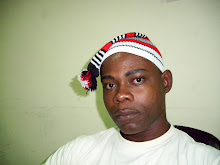The popular, albeit ominous, statement, “This is Lagos” really does capture the essence of life in the sprawling city called Lagos. Currently the sixth largest city in the world with an estimated population of thirteen million inhabitants, Lagos easily qualifies as the nerve centre of the Nigerian country and indeed the African continent. However a multitude of problems abound in this megacity. The United Nations Cyber School website sums it up succinctly, “Energy and water access, sewerage, transportation and housing have all been adversely affected by haphazard development of a geographically disjointed city”- www.cyberschoolbus.un.org.
A lot of issues abound in Lagos such as Migration, Health, Traffic and the ever predominant issue of lack of social services. On an excruciating hot afternoon, my partner, Richard Babarinsa and I set out on an exploration of selected areas of Lagos Island in a quest to get a feel of the place. Our first port of call is the intense congested square popularly known by locals as “P & T” bordered by the massive seven-floor Ministry of Commerce building on one hand and the popular Lewis Street on the other. A sense of chaos greets you, buses and motorcycle taxis blaring horns whip by, everyone seems in a frantic haste even though its way past the rush hour, a DVD plates retailer adds the high pitched advertisement of his wares to the din, it seems hell really did break loose.
We are attracted to a rare sight, a young man sitting near a call centre and calmly reading a book and approach him. He amiably introduces himself as Joseph Dare, age 32 and a Caterer by profession. He is “a true Lagosian” , as he describes it because he was born in Lagos. He is a staff of Bonix Party Drinks and explain he is idling now because he normally works on weekends if customers come knocking, he worked last weekend and prays he gets an offer this weekend. Joseph animatedly argues that the greatest problem Lagos has is that, “Government really does nothing for the people”. He believes the Government should provide better roads, housing and healthcare but most importantly, “give ambitious youths like me the opportunity to afford schooling as my desire is to study Business Management and start my own large scale catering outfit”.
Richard and I continue our tour and find ourselves in the popular Tafawa Balewa Stadium. A bit more subdued area, perhaps due to the ever looming presence of the Ministry of Defence in the next street, however the hustle and bustle were still evident. The commercial bus drivers especially of the mini bus popularly called “molue” scream out their routes at the top of their lungs as if demanding that passengers come on board whether or not you had business plying those routes. The stadium shopping complex houses lots of travel agencies and seem to be doing brisk business as a good deal of the population seem eager to leave the country in search of greener pastures.
We enter one of the travel agency offices and meet with the manager who is noticeably disappointed we are not prospective clients. He adamantly refuses to give his name, because according to him, “Nigerian journalists often get you in trouble with quotes attributed to you that you have never heard before in your life”. A 1990 graduate from Federal University of University Owerri, the 35 year old came to Lagos in 1994 and sees the city as a big commercial centre. He believes Lagos is a fertile ground because, “virtually every business in Nigeria is linked to Lagos”. He, however, identifies numerous problems with life in Lagos emphasising particularly on issues of housing and transportation. He also believes the Government is not providing any social services and suggests the adoption of a more practical mortgage system in solving the housing problem.
A couple of years ago, 2003 precisely, the BBC asked novelists who have a profound understanding of the city they live in to reflect on the fiction it has produced and the various works of literature set there. In BBC’s compilation of these contributions titled Sense of the City: Lagos, Helon Habila (the 2001 Caine Prize Winner) really captures the “This is Lagos” phenomenon in this apt statement, “Lagos is seen as a place where people come and lose their innocence. It is seen as a kind of enemy to innocence, because basically it is a colonial creation”
Subscribe to:
Post Comments (Atom)





1 comment:
the problems in Lagos is no longer news , i belief that those in OUtside Lagos and even the country hav a picture of what Lagos is all about. the government has to come in fully cos the problems are glaring. it is Tafawa balewa square not stadium. i must confess the government has failed the peple that is why the people have lost hope on them. we pray that God will touch and change them to realise that they are there for the people especially the real people. All of their polices affects them(people).
Post a Comment